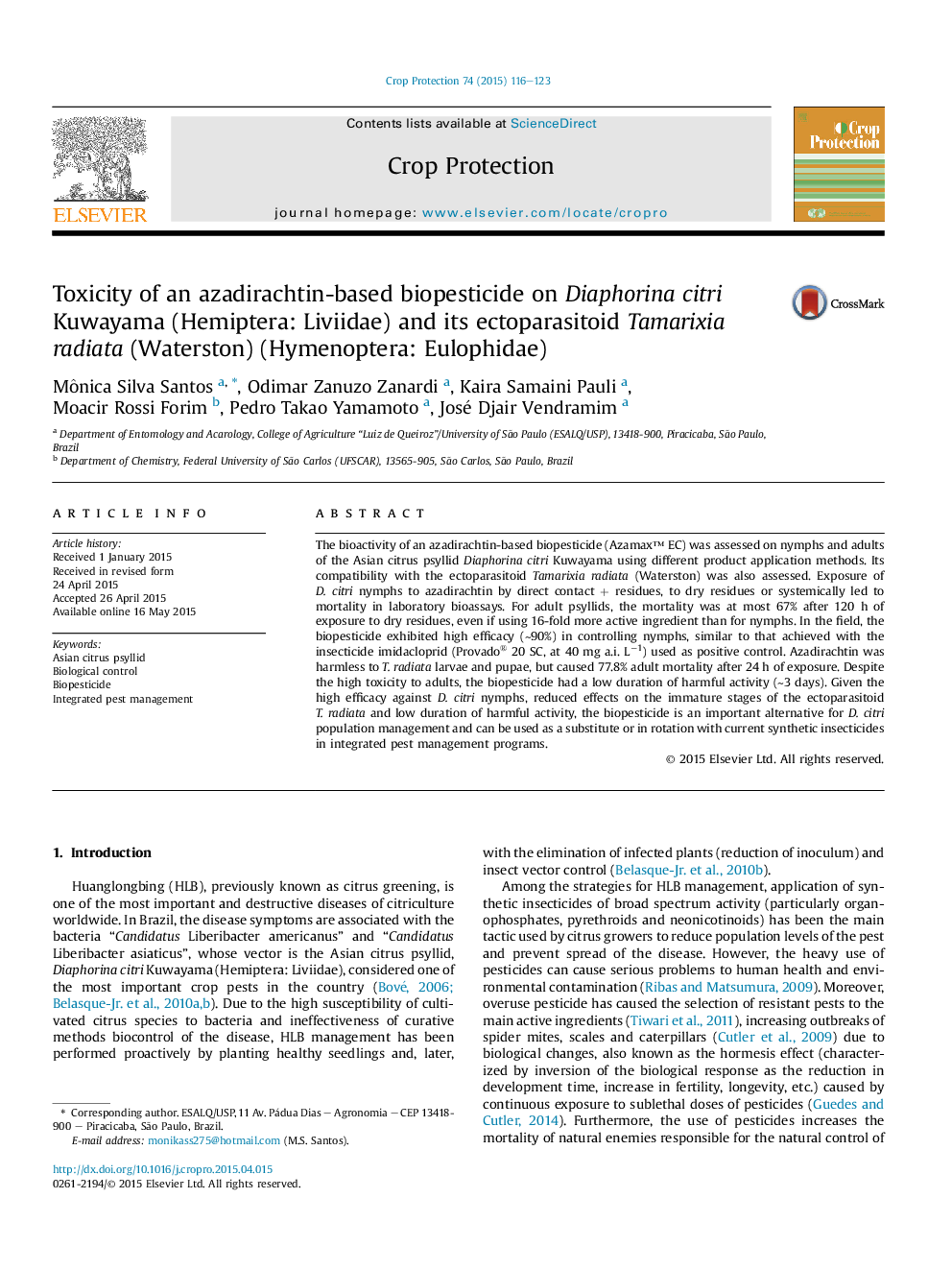| کد مقاله | کد نشریه | سال انتشار | مقاله انگلیسی | نسخه تمام متن |
|---|---|---|---|---|
| 4505749 | 1624313 | 2015 | 8 صفحه PDF | دانلود رایگان |

• Action of an azadirachtin-based biopesticide on Diaphorina citri and Tamarixia radiata.
• The biopesticide was highly harmful to D. citri nymphs and T. radiata adults.
• The biopesticide was highly effective to D. citri nymphs in field.
• The tested biopesticide showed a short residual effect (∼3 days) to T. radiata adults.
• The bioactivity of biopesticide to D. citri nymphs was similar to that of imidacloprid.
The bioactivity of an azadirachtin-based biopesticide (Azamax™ EC) was assessed on nymphs and adults of the Asian citrus psyllid Diaphorina citri Kuwayama using different product application methods. Its compatibility with the ectoparasitoid Tamarixia radiata (Waterston) was also assessed. Exposure of D. citri nymphs to azadirachtin by direct contact + residues, to dry residues or systemically led to mortality in laboratory bioassays. For adult psyllids, the mortality was at most 67% after 120 h of exposure to dry residues, even if using 16-fold more active ingredient than for nymphs. In the field, the biopesticide exhibited high efficacy (∼90%) in controlling nymphs, similar to that achieved with the insecticide imidacloprid (Provado® 20 SC, at 40 mg a.i. L−1) used as positive control. Azadirachtin was harmless to T. radiata larvae and pupae, but caused 77.8% adult mortality after 24 h of exposure. Despite the high toxicity to adults, the biopesticide had a low duration of harmful activity (∼3 days). Given the high efficacy against D. citri nymphs, reduced effects on the immature stages of the ectoparasitoid T. radiata and low duration of harmful activity, the biopesticide is an important alternative for D. citri population management and can be used as a substitute or in rotation with current synthetic insecticides in integrated pest management programs.
Journal: Crop Protection - Volume 74, August 2015, Pages 116–123